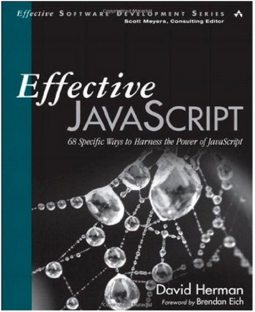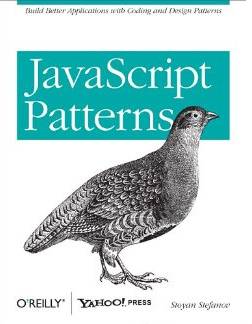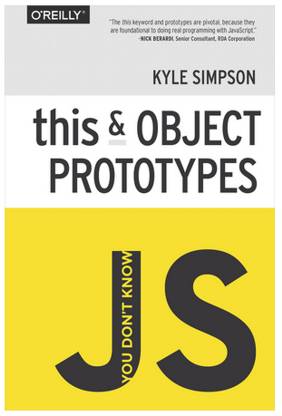| Building A JavaScript Library |
| Thursday, 05 February 2015 | ||||
Page 1 of 3 If you are looking for a book on JavaScript you are spoilt for choice. There are plenty of books on this language both new and classic. Here's a selection our reviewers recommend. I Programmer takes a real interest in books. We try to keep up with new releases with our daily Book Watch and we run a dozen or more full reviews every month in which members of the team select titles that match their interests. We have almost 80 reviews in our JavaScript books section and to be included in here a book has to have been awarded at rating of at least 4 out of 5. Here the main points of each review has been extracted. To read the full version click on the title. Clicking on the book jacket thumbnail in the side panel will take you to Amazon and if there's is a Kindle version Ithe lower of the two thumbnails) you can generally read the introductory chapter. If you make a book purchase accessing Amazon from a link on I Programmer means that we are credited with a few cents - so thanks to all of you who support us in this way. Understanding JavaScriptJavaScript is a language that suffers from its very name. It is often misunderstood simply because of the inclusion of "script" in its name. In fact it is a powerful, modern language that deserves to be taken serously. If you need more persuasion, see Why JavaScript is a Jem, JavaScript Inherits the Earth and JavaScript Is Basic's Offspring. We'll start with some books that will be of interest if you already program in JavaScript. Effective JavaScriptAuthor: David Herman JavaScript can be difficult to get right if you don't understand it. This book provides 68 specific examples of how you can get it wrong and how to get it right. The big problem with JavaScript is that so many programmers "pick it up" and don't spend the time they should learning it. Even if they do, most of the introductions treat the language as if it was a substandard version of Java or C++. It would be better if the language was taught correctly initially rather than having to patch up the misunderstandings at a later date. This is what this particular book attempts to do - put right the misunderstandings. What this means is that it isn't a beginner's book and it doesn't teach you JavaScript. You will only get something from this book if you have written enough JavaScript to have made most of the mistakes explained in this book.
The book is a good read. Even if you know some of the problems or even all of the problems it outlines then you will still most probably enjoy reading it. It introduces the problem by showing you an example of how it shouldn't be done and then by giving you the solution. I couldn't help but keep on thinking that much of what was being explained would be more obvious to the average JavaScript programmer if the language was taught or explained properly in the first place. For example if you really take to heart the idea that everything is an object then many of the behaviors which are claimed to be surprising are in fact perfectly obvious and logical. And most of all stopping trying to force JavaScript's object-oriented facilities into the classical class based strongly typed hierarchy would also make things seem much more logical. JavaScript is a unique, powerful and fun language and it deserves to be treated right. JavaScript PatternsAuthor: Stoyan Stefanov This is a really enjoyable book - it's short, easy-to-read and you are likely to learn something from every page. It isn't for beginners but every Javascript beginner should aspire to reading and understanding the content of this book.
To put things simply what this book is about is the best way to use Javascript and, because Javascript is such a flexible language, it informs you about lots of bad ways to avoid as well. The good thing about this book is that it doesn' t attempt to bully you into using a particular pattern or approach. It describes the pros and cons of a range of approaches and then concludes that one of them is likely to better - even if only very slightly better in many cases. As long as you know enough Javascript and programming in general to appreciate the arguments than this is a very enjoyable book that can't help but improve the quality of the code you produce. I said at the start that it isn't suitable for the beginner but if you are a beginner then your goal in life should be to progress to the point that you can benefit from reading it. This is now my official number one intermediate to advanced Javascript book - highly recommended.
You Don't Know JS: this & Object PrototypesAuthor: Kyle Simpson This small focused book is the second in the You Don't Know JS collection. but in many ways it probably should have been the first. The reason is that the majority of programmers misunderstand the use of this and the so-called prototypical inheritance that JavaScript offers. Then there is the second big problem of programmers coming from a class-based, object-oriented background, and that's most of us, trying to turn JavaScript into something it isn't - again this mostly centers on clever use of this and prototype.
This is a book that takes the right approach, i.e. it treats JavaScript as JavaScript and doesn't try to make it something else, but often I found the logical organization of what JavaScript offers overly complex. It is so much easier to give the grand organizing principle and then list the exceptions than to list every possible case as if the sum total was the grand principle. If you do know JavaScript then reading it will be fun because you can spend time working out why you don't think about it quite in the same way. If you don't know JavaScript at this level then although you will get a lot out of this book, you run the risk of being confused because it could be so much simpler.
|
||||
| Last Updated ( Thursday, 18 June 2015 ) |




